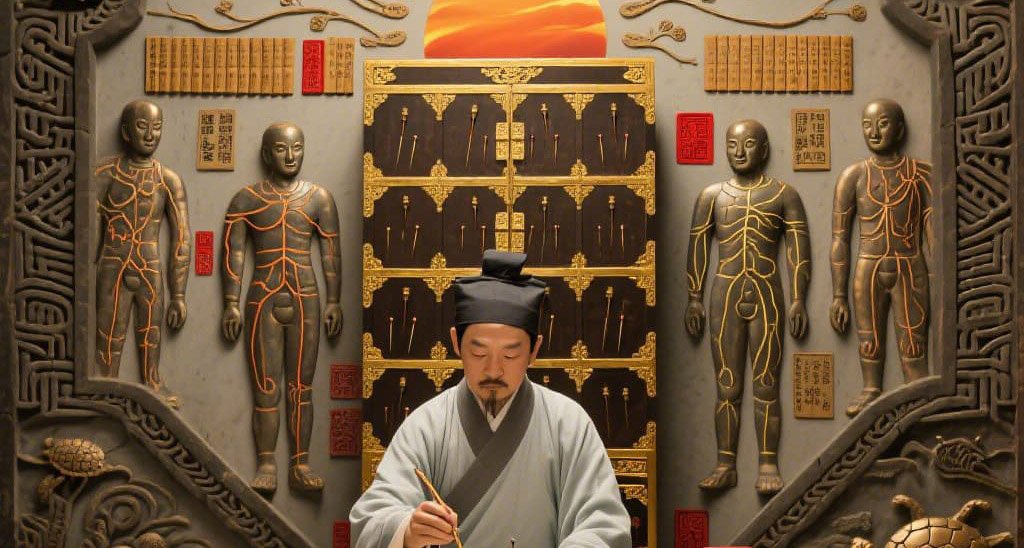Baziwo (Pregnancy Vomiting)
【Overview】
In Miao medicine, pregnancy vomiting is called Baziwo, also known as Baodai’outu. Baziwo is caused by women’s constitutional weakness, gastrointestinal dysfunction, and poor circulation of qi and blood during pregnancy. The pathogenic mechanism involves disharmony of the spleen and stomach, impaired transformation and transportation of food and water, obstructed flow of qi and blood, and reversed qi flow. Clinically, it is characterized by nausea, vomiting, dizziness, fatigue, and even vomiting immediately after eating.
In traditional Chinese medicine (TCM), early pregnancy vomiting accompanied by dizziness, fatigue, and aversion to food is referred to as e zhu (恶阻). The pathogenesis is mainly due to blood accumulation in the uterus after missed menstruation, leading to disharmony in the stomach, reversed qi flow along the Yangming Stomach Meridian, and resulting in nausea and vomiting.
In Western medicine, pregnancy vomiting is classified under early pregnancy reactions, presenting as dizziness, fatigue, drowsiness, loss of appetite, aversion to greasy foods, nausea, and vomiting. In severe cases, it may cause electrolyte imbalance and become life-threatening. Symptoms usually appear around the sixth week of pregnancy, peak between weeks eight and ten, and spontaneously resolve by the twelfth week. It may be related to increased levels of human chorionic gonadotropin (hCG). Treatment mainly involves avoiding exposure to irritating substances.
【Huhoujipeng · Miao Disease Classification】
Baziwo is classified as a minor illness and is divided into two types: cold-meridian pregnancy vomiting and heat-meridian pregnancy vomiting.
【Aiduojing · Causes】
In Miao medicine, Baziwo results from constitutional weakness in women, gastrointestinal dysfunction, and stagnation of qi and blood during pregnancy, leading to nausea and vomiting.
【Gengduomeng · Pathogenesis】
Gastrointestinal dysfunction, constitutional weakness, and menstrual disorders can all cause vomiting during pregnancy. The spleen and stomach are the foundation of acquired constitution and the source of qi and blood production. Impaired gastrointestinal function weakens this source; menstrual disorders can trigger vomiting; irritability and liver qi stagnation can also cause nausea and vomiting.
【Diagnostic Key Points】
Diagnostic Basis
(1) History of amenorrhea and early pregnancy symptoms.
(2) Frequent nausea and vomiting, dizziness, aversion to food, severe cases with vomiting upon eating or even without eating, general fatigue, mental listlessness, emaciation, possible low blood pressure, fever, jaundice, lethargy, or coma.
Related Examinations
Gynecological examination, pregnancy tests, urine ketones, liver function, and renal function tests assist diagnosis.

【Differential Diagnosis】
Ailuo’ou (Vomiting)
Ailuo’ou is associated with the invasion of wind toxin, cold toxin, damp toxin, or water toxin. Its pathogenesis involves the invasion of external pathogens, stagnation of food and water essence, impaired transformation, and reversed stomach qi, leading to vomiting; or emotional disturbances causing qi rebellion and nausea. It is characterized by sudden nausea and vomiting, chest tightness, and discomfort.
Baziwo, on the other hand, stems from constitutional weakness, gastrointestinal dysfunction, and stagnation of qi and blood during pregnancy, resulting in spleen and stomach disharmony and reversed qi flow, presenting mainly as nausea, vomiting, dizziness, and fatigue, often vomiting immediately after eating.
【Classification and Treatment】
Cold-Meridian Pregnancy Vomiting
Mengliduo (Clinical Manifestations): Early pregnancy nausea and vomiting, poor appetite, vomiting immediately after eating, tastelessness in the mouth, clear saliva, dizziness, and abdominal distension.
Xingleng (Meridian Association): Cold meridian and cold disease.
Jiahemeng (Treatment Principle): Strengthen the spleen and harmonize the stomach, stop vomiting.
Ouduoxijia, Gang’ou (Prescription and Interpretation):
Baojianggeda (Poria, fu ling) 15g
Galiuxigengli (Tangerine Peel, chen pi) 10g
Kela (Processed Pinellia Tuber, zhi ban xia) 12g
Oudi (Perilla Leaf, su ye) 10g
Lange (Polygonatum Odoratum, yu zhu) 15g
Decoction taken orally.
Explanation:
Baojianggeda is warm in nature and sweet in flavor; it enters the cold meridian to drain dampness, strengthen the spleen, nourish the middle, and calm the spirit.
Galiuxigengli is warm, pungent, and bitter; it enters the cold meridian to strengthen the spleen, transform phlegm, and regulate qi.
Kela is warm, pungent, and spicy; it enters the cold meridian to descend rebellious qi and stop vomiting.
Oudi is warm and pungent; it enters the cold meridian to regulate qi, widen the chest, and activate blood.
Lange is neutral and sweet; it enters the cold meridian to nourish yin, moisten dryness, generate fluids, and stop vomiting.
Heat-Meridian Pregnancy Vomiting
Mengliduo (Clinical Manifestations): Early pregnancy nausea, sour vomiting, aversion to greasy foods, irritability, thirst, dry mouth, bitter taste, head distension, dizziness, chest tightness, chest pain, and foul breath.
Xingleng (Meridian Association): Heat meridian and heat disease.
Jiahemeng (Treatment Principle): Soothe the liver and harmonize the stomach, stop vomiting.
Ouduoxijia, Gang’ou (Prescription and Interpretation):
Nuodujia’kaidu (Coptis, shui huang lian) 8g
Kela (Processed Pinellia Tuber, zhi ban xia) 12g
Banglati (Loquat Leaf, pi pa ye) 15g
Dou’apan (Broom Bush, tie sao zhou) 15g
Decoction taken orally.
Explanation:
Nuodujia’kaidu is cold and bitter; it enters the heat meridian to clear heat, drain dampness, and detoxify.
Kela is warm, pungent, and spicy; it enters the cold meridian to descend rebellious qi and stop vomiting.
Banglati is cold and bitter; it enters the heat meridian to clear the lung, harmonize the stomach, descend qi, and transform phlegm.
Dou’apan is cold and bitter; it enters the heat meridian to strengthen the spleen and stop vomiting.
【Prevention and Care】
Rest more and maintain a light diet.
Strengthen nutrition and balance work and rest.
Regular prenatal checkups.
Take Vitamin B supplements under medical supervision to alleviate symptoms.
【Notes】
The causes of this condition include women’s constitutional weakness, gastrointestinal dysfunction, spleen-stomach disharmony, and liver qi stagnation. As the spleen and stomach are the postnatal foundation and source of qi and blood, impaired gastrointestinal function results in insufficient qi and blood production. Menstrual disorders and emotional disturbances also contribute to vomiting. Treatment should focus primarily on descending rebellious qi and stopping vomiting.


Leave a Reply